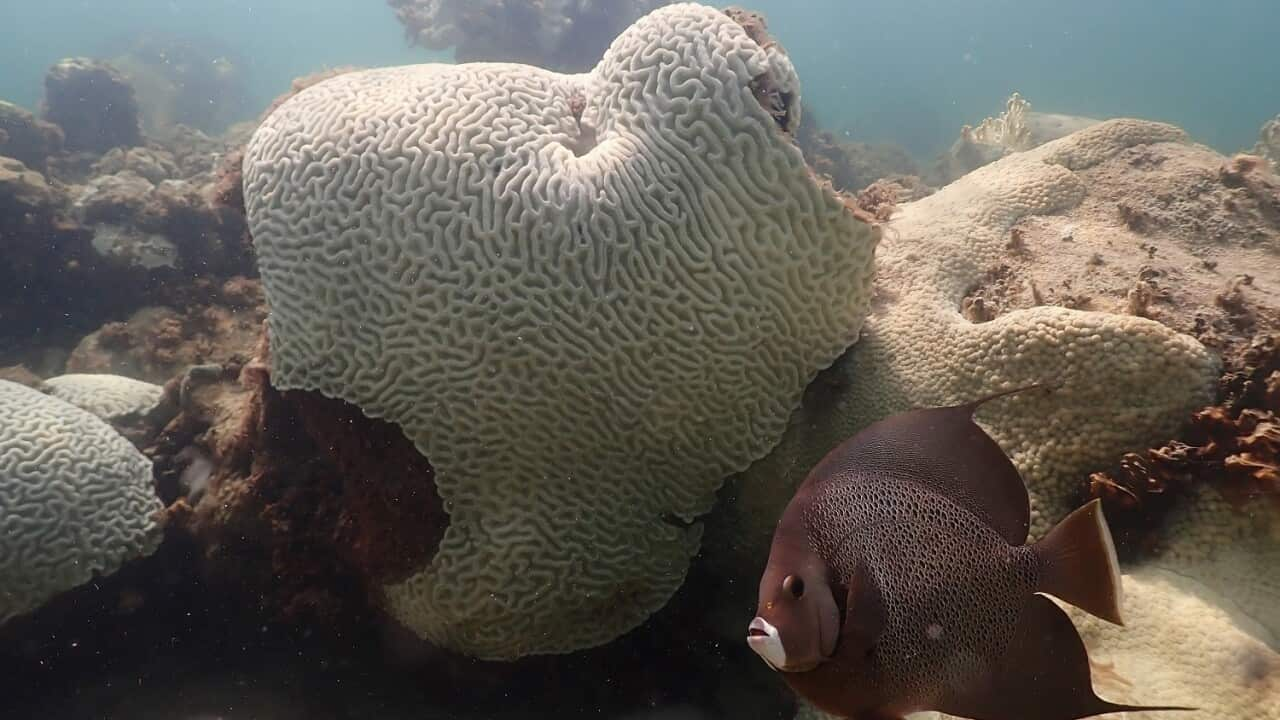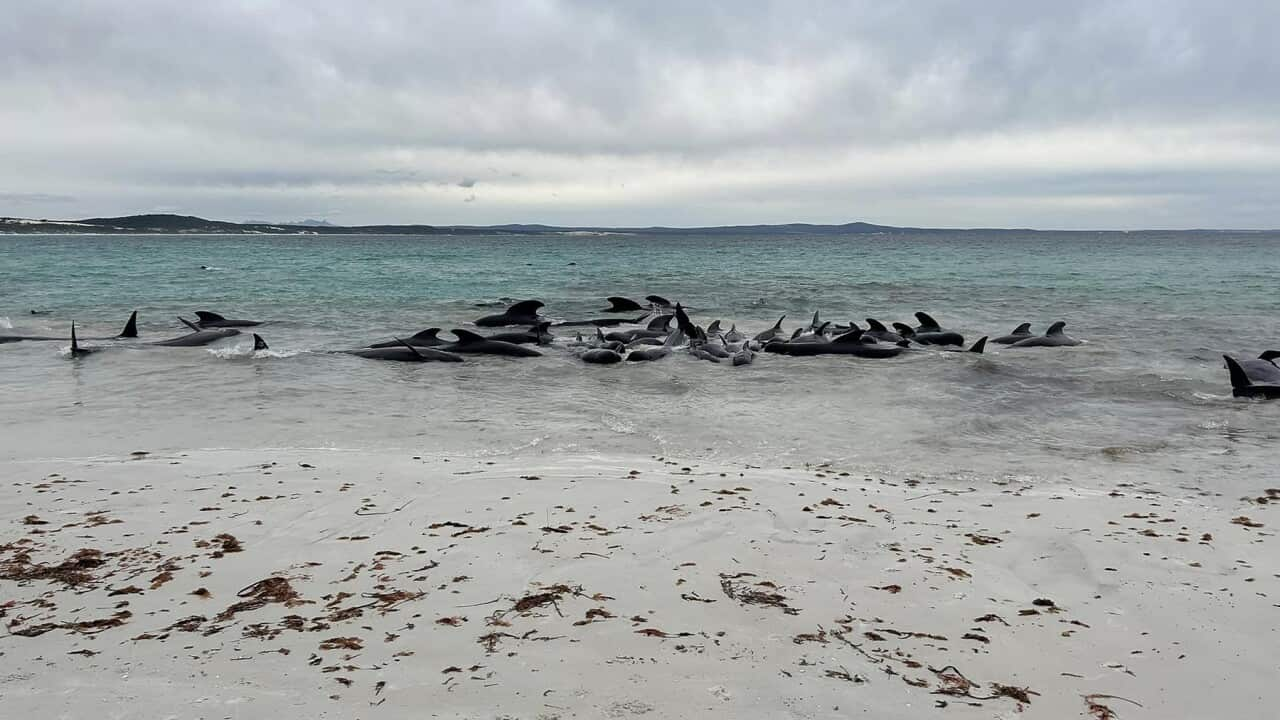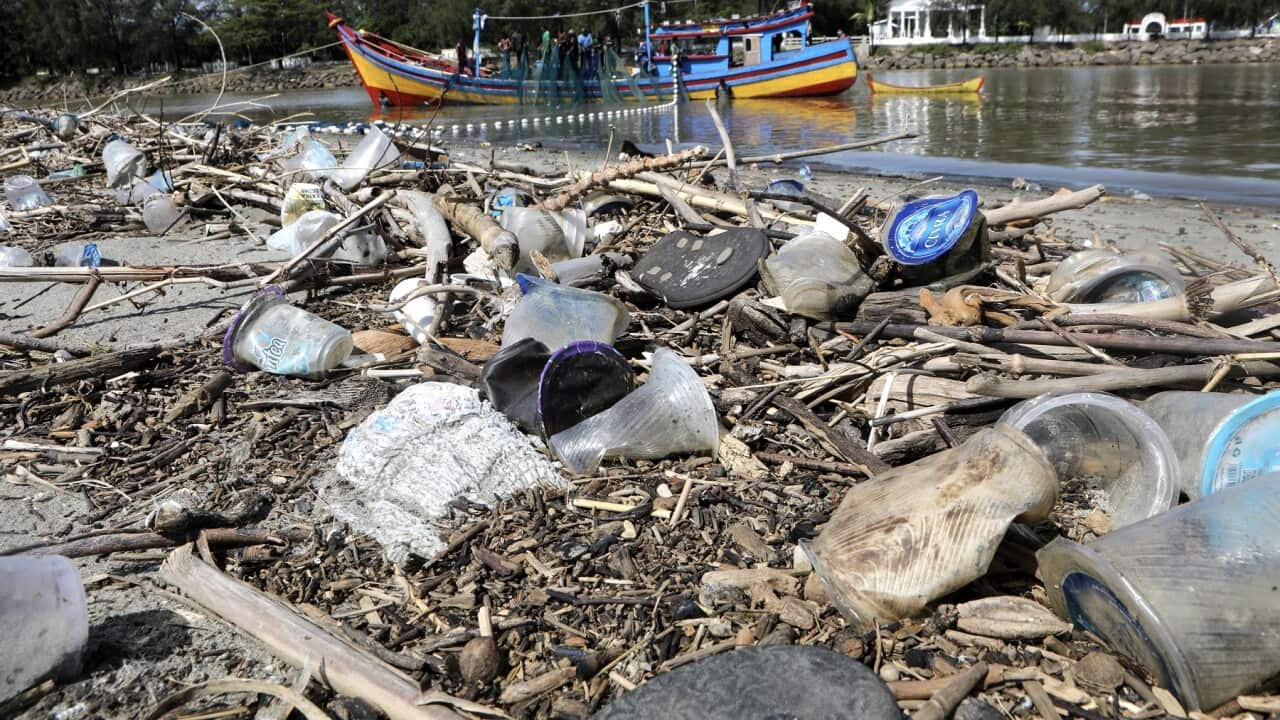TRANSCRIPT
George Roff - a marine ecologist at CSIRO - has been documenting the transformation of coral in the Great Barrier Reef.
“We were fortunate enough to be there in December right when the mass spawning was and during that time these reefs were in amazing conditions - some of the healthiest I've seen in 10-15 years. And following the mass summer and the onset of spawning, these degree heating weeks, these summer surface temperatures, started to warm and when we arrived back in March, we were expecting some degree of heating but we were surprised by how much we saw.”
He says changes - which took place over three months, were stark.
“It's striking to see the level of damage that can be done, I mean it's emotive but I think for me having worked on the reefs for over two decades, it's seeing what we expected play in 2050, 2060, occuring now.”
Lissa Schindler - another marine ecologist - has also been diving the Great Barrier Reef for the past 20 years.
She says her latest trip was an emotional one.
“It's the first time I've gone for a dive and then not wanted to get back in. I found, just found it really confronting and really this level of grief that I haven't felt before.”
The UN World Heritage site is in the grips of another mass bleaching event - the phenomenon beginning in the late 90s
There have been seven in total and five have occurred in the past eight years.
And while we won't know the severity of this latest mass bleaching until later this year, new data suggests more than 80 per cent of the reef is under heat stress
Coral bleaching is triggered when ocean temperatures warm past a threshold they can tolerate.
Roger Beeden is from the Great Barrier Reef Marine Part Authority.
“So when we start having this prolonged heat stress, that's when that relationship breaks down, the corals push out the algae and the problem for the coral is, it's still alive at that point, but if temperatures don't come back soon enough it essentially doesn't have enough energy.”
There is hope for recovery, scientists say but the scale of heat stress across the Reef should serve as wake up call.
The Climate Council's Dr Simon Bradshaw says it underscores urgency to "drive down climate pollution."
“We've likened this most recent bleaching event to the devastating Black Summer bushfires of 2019, 2020 to give a sense of the scale of the area that's been affected. This is a consequence of severe marine heatwaves, driven by climate change, driven by the burning of coal, oil and gas.”
Minister for the Environment Tanya Plibersek says efforts are being made to address climate change.
“Of course we're concerned, very concerned about the bleaching event on the Great Barrier Reef but it's in line sadly what's happening with reefs all around the world. It's why we've got our target to get to net zero by 2050, it's why we've legislate the safeguards mechanism, it's why we've got our 82 per cent renewable energy target.”
Last year, global average ocean temperatures hit record levels.
Warming waters have triggering a fourth global bleaching event, according to the US National Oceanic and Atmospheric Administration.
And the coordinator of the organisation's Coral Reef Watch program, Derek Manzello, has this warning.
“It's likely that in a few weeks' time, this event will officially be the most spatially extensive global coral bleaching event on record. And what that means is bleaching level heat stress will be experienced by more coral reef areas around the planet than has ever occurred before on record.”
El Nino - a natural climate event - contributed to record ocean temperatures
Significant coral bleaching has been reported in at least 54 countries and territories since the beginning of 2023.
Curbing local pollution and coastal development can assist coral resilience, scientists say but cutting greenhouse gas emissions - key to its survival.













